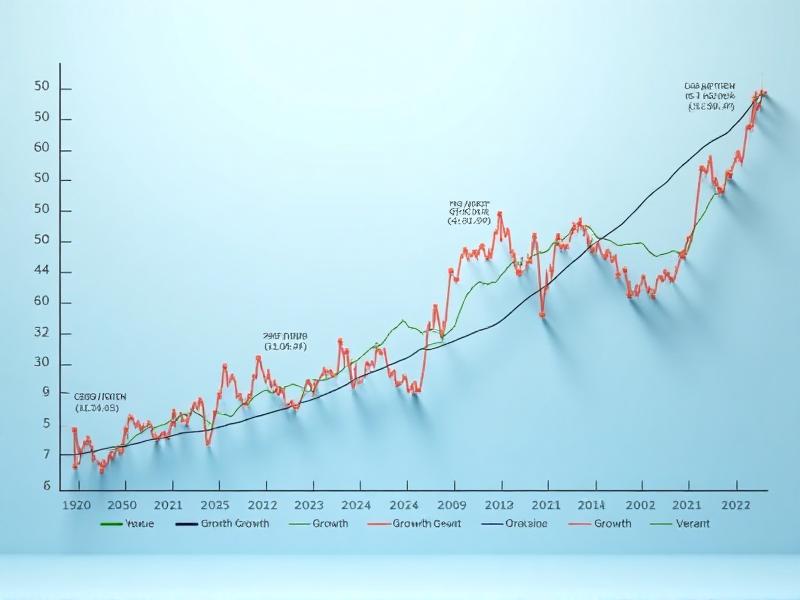
The Financial Benefits of a Digital Detox

How to Invest in ESG (Environmental, Social, Governance) Funds

The Role of AI in Financial Planning

How to Choose the Right Hostel: 6 Tips to Avoid Bad Stays
How Blockchain is Revolutionizing Finance
Apr 24, 2025 By Juliana Daniel
How Blockchain is Revolutionizing Finance
Introduction to Blockchain Technology
Blockchain technology, often associated with cryptocurrencies like Bitcoin, is a decentralized digital ledger that records transactions across multiple computers. This ensures that the record cannot be altered retroactively without the alteration of all subsequent blocks and the consensus of the network. The implications of this technology are vast, particularly in the financial sector, where it promises to enhance transparency, security, and efficiency.
Decentralization: The Core of Blockchain
Decentralization is the cornerstone of blockchain technology. Unlike traditional financial systems that rely on centralized authorities like banks or governments, blockchain operates on a peer-to-peer network. This eliminates the need for intermediaries, reducing costs and increasing transaction speed. Decentralization also enhances security, as there is no single point of failure that can be exploited by hackers.
Smart Contracts: Automating Financial Transactions
Smart contracts are self-executing contracts with the terms of the agreement directly written into code. They automatically execute and enforce the terms of a contract when predefined conditions are met. This innovation is particularly transformative in finance, where it can automate complex processes like loans, insurance, and asset management, reducing the need for manual intervention and minimizing the risk of errors or fraud.
Cryptocurrencies: Redefining Money
Cryptocurrencies are digital or virtual currencies that use cryptography for security and operate on blockchain technology. They offer a decentralized alternative to traditional fiat currencies, enabling peer-to-peer transactions without the need for intermediaries. Cryptocurrencies like Bitcoin and Ethereum have gained significant traction, challenging the conventional financial system and offering new opportunities for investment and financial inclusion.
Blockchain in Banking: Enhancing Efficiency and Security
Banks are increasingly adopting blockchain technology to streamline operations and enhance security. Blockchain can reduce the time and cost associated with cross-border payments, improve the accuracy of record-keeping, and provide a transparent and immutable audit trail. Additionally, blockchain can enhance fraud detection and prevention, as all transactions are recorded on a secure and transparent ledger.
Tokenization: Unlocking New Financial Opportunities
Tokenization is the process of converting real-world assets into digital tokens on a blockchain. This can include anything from real estate to art to stocks. Tokenization allows for fractional ownership, making it easier for individuals to invest in high-value assets. It also enhances liquidity, as tokens can be traded on blockchain platforms, opening up new financial opportunities and democratizing access to investment.
Regulatory Challenges and the Future of Blockchain in Finance
Despite its potential, blockchain technology faces regulatory challenges. Governments and financial institutions are grappling with how to regulate this new technology without stifling innovation. Issues like data privacy, security, and the prevention of illegal activities are key concerns. However, as regulatory frameworks evolve, blockchain is poised to play an increasingly significant role in the future of finance, driving innovation and transforming the way we manage and transfer value.
Blockchain and Financial Inclusion
Blockchain technology has the potential to significantly enhance financial inclusion by providing access to financial services for the unbanked and underbanked populations. Traditional banking systems often exclude individuals who lack the necessary documentation or live in remote areas. Blockchain can offer a decentralized alternative, enabling individuals to access financial services through their smartphones or other devices. This can empower people in developing countries, providing them with opportunities for savings, loans, and investments that were previously inaccessible.
Blockchain in Supply Chain Finance
Supply chain finance is another area where blockchain is making significant strides. By providing a transparent and immutable ledger, blockchain can enhance the efficiency and security of supply chain transactions. This can reduce the risk of fraud, improve the accuracy of records, and streamline the payment process. Additionally, blockchain can enable real-time tracking of goods, providing greater visibility and accountability throughout the supply chain. This can lead to more efficient operations, reduced costs, and improved relationships between suppliers and buyers.
Blockchain and Cybersecurity in Finance
Cybersecurity is a critical concern in the financial sector, where sensitive data and transactions are constantly at risk of being compromised. Blockchain technology offers a robust solution to these challenges by providing a secure and transparent ledger that is resistant to tampering. The decentralized nature of blockchain means that there is no single point of failure, making it much harder for hackers to exploit vulnerabilities. Additionally, the use of cryptographic techniques ensures that data is securely encrypted, providing an extra layer of protection. As cyber threats continue to evolve, blockchain is becoming an essential tool for enhancing cybersecurity in finance.
Blockchain and Cross-Border Payments
Cross-border payments have traditionally been slow, expensive, and prone to errors. Blockchain technology is revolutionizing this process by enabling faster, cheaper, and more secure transactions. With blockchain, cross-border payments can be completed in minutes rather than days, and at a fraction of the cost. This is particularly beneficial for businesses that operate internationally, as it can improve cash flow and reduce transaction costs. Additionally, the transparency and immutability of blockchain provide greater security and accountability, reducing the risk of fraud and errors.
Blockchain and Asset Management
Asset management is another area where blockchain is making a significant impact. By providing a transparent and immutable ledger, blockchain can enhance the accuracy and efficiency of asset tracking and management. This can reduce the risk of errors and fraud, and provide greater visibility into asset performance. Additionally, blockchain can enable the tokenization of assets, allowing for fractional ownership and more flexible investment opportunities. This can democratize access to asset management, making it easier for individuals to invest in a diverse range of assets.
Blockchain and Insurance
The insurance industry is also benefiting from blockchain technology. By providing a transparent and immutable ledger, blockchain can enhance the accuracy and efficiency of claims processing. This can reduce the risk of fraud, improve the speed of payouts, and provide greater transparency for policyholders. Additionally, blockchain can enable the creation of smart contracts that automatically execute claims when predefined conditions are met. This can streamline the claims process, reduce administrative costs, and improve the overall customer experience.
Blockchain and Peer-to-Peer Lending
Peer-to-peer lending is another area where blockchain is making a significant impact. By providing a transparent and immutable ledger, blockchain can enhance the efficiency and security of peer-to-peer lending platforms. This can reduce the risk of fraud, improve the accuracy of records, and provide greater transparency for both lenders and borrowers. Additionally, blockchain can enable the creation of smart contracts that automatically execute loan agreements when predefined conditions are met. This can streamline the lending process, reduce administrative costs, and improve the overall customer experience.
Blockchain and Identity Verification
Identity verification is a critical component of the financial sector, where the risk of fraud and identity theft is high. Blockchain technology offers a robust solution to these challenges by providing a secure and transparent ledger that is resistant to tampering. The decentralized nature of blockchain means that there is no single point of failure, making it much harder for hackers to exploit vulnerabilities. Additionally, the use of cryptographic techniques ensures that data is securely encrypted, providing an extra layer of protection. As identity verification continues to evolve, blockchain is becoming an essential tool for enhancing security and efficiency in the financial sector.
Blockchain and Financial Data Management
Financial data management is another area where blockchain is making a significant impact. By providing a transparent and immutable ledger, blockchain can enhance the accuracy and efficiency of financial data management. This can reduce the risk of errors and fraud, and provide greater visibility into financial performance. Additionally, blockchain can enable the creation of smart contracts that automatically execute financial agreements when predefined conditions are met. This can streamline the financial management process, reduce administrative costs, and improve the overall customer experience.
Blockchain and Regulatory Compliance
Regulatory compliance is a critical concern in the financial sector, where the risk of non-compliance can result in significant penalties and reputational damage. Blockchain technology offers a robust solution to these challenges by providing a transparent and immutable ledger that is resistant to tampering. The decentralized nature of blockchain means that there is no single point of failure, making it much harder for hackers to exploit vulnerabilities. Additionally, the use of cryptographic techniques ensures that data is securely encrypted, providing an extra layer of protection. As regulatory compliance continues to evolve, blockchain is becoming an essential tool for enhancing security and efficiency in the financial sector.
Blockchain and Financial Innovation
Blockchain technology is driving financial innovation by enabling new business models and financial products. From decentralized finance (DeFi) platforms to tokenized assets, blockchain is opening up new opportunities for investment and financial inclusion. This innovation is not only transforming the financial sector but also challenging traditional financial institutions to adapt and evolve. As blockchain technology continues to mature, it is poised to play an increasingly significant role in the future of finance, driving innovation and transforming the way we manage and transfer value.

The Role of AI in Wealth Management

The Role of Financial Planning in Career Transitions

How to Invest in Gold and Precious Metals

How to Invest in Value Stocks for Long-Term Gains

Social Security and Cost-of-Living Adjustments (COLA)

How to Use Digital Wallets for Secure Transactions

How to Invest in Real Estate Without Buying Property

Discovering the Charm of Deià: A Travel Guide to Mallorca’s Hidden Gem
Advertisement
